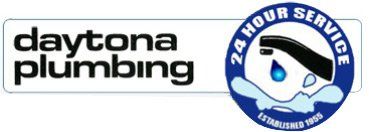Broken Electric Water Heater? 5 Causes and Solutions
- By
- •
- 26 Oct, 2022
Your water heater is a crucial appliance, especially if you live in a cold region. But, the unit can face different issues that make it fail to deliver hot water to the faucets. The good news is that the problem does not always call for a whole system replacement. Instead, you can resolve the issue with professional repairs or the replacement of affected parts.
Below are some top reasons why you can’t get hot water from your heater and how to solve each.
1. Your Circuit Breaker Has Tripped
If you do not get hot water from your electric heater, your circuit breaker may have tripped. The circuit breaker supplies power to your heater, so a tripped one cuts off the power supply. As a result, your water does not get the energy to heat up and thus remains cold.
The solution to a tripped circuit breaker is straightforward. First, check your breaker box and confirm if any breakers have switched off. Also, some breakers could slightly shift and fall out of line with the others. In such a case, flip the affected breaker off and wait for some seconds to flip it back on. Finally, call the experts to inspect and address the root problem if you still get cold water.
2. Your Water Tank Is Too Small
Water heaters have various tank sizes designed to meet different needs. However, you can run out of hot water if you do not upgrade your tank size as your hot water usage grows. For example, a small tank cannot meet your needs if you frequently run water-using appliances like the washer.
First, confirm that your heater can handle your family's needs to solve the problem. If not, get a bigger replacement to accommodate the new demands. Alternatively, opt for a tankless water heater, but ensure the gallon per minute capacity meets your household needs.
3. Your Heater Is Too Old
Most water heaters have a lifespan of 10 to 20 years, based on the type. For instance, on-demand water heaters have an expected lifespan of more than 20 years. On the flip side, standard water heaters last for about ten years. Old age may cause components to fail.
The solution to an old water heater is to either repair or replace the unit. An expert can help you assess the practicality of each option so that you can make the best decision. For instance, old standard water heaters could call for frequent, costly repairs, so a replacement is ideal. Nonetheless, you can replace the parts for on-demand heaters and extend your heater's life.
4. Your Thermostat Is Faulty
Your water heater connects to a thermostat that controls the water temperature. Unfortunately, problems in the thermostat can extend to your heater and deny you hot water. For instance, a tripped high-temperature cutoff switch on your thermostat cuts the hot water supply. Poor maintenance, too, can cause sediment buildup that disrupts your water heater's operations.
You could use a multimeter to inspect the readings of the upper and lower thermostat. In such instances, ensure that you get a zero reading. You will need a replacement if you do not get any reading. Contact the manufacturers or an expert to get the correct replacement to restore your water heater.
5. Your Water Heater System Has Sediment and Mineral Buildup
If you have never replaced your old pipes, the lines may be full of deposits restricting water flow. The sediments also occupy space and reduce the amount of available water in your tank. As a result, your heater becomes less efficient and runs out of hot water.
Drain your tank at predetermined intervals to reduce mineral buildup. You could also call an expert to flush your hot water tank during scheduled maintenance. Finally, a powered anode rod can come in handy to reduce sediment accumulation inside your water heater.
As you have read, your water heater may fail to give you hot water for many reasons. At Daytona Plumbing, we are ready to handle all your needs if you still have questions or want water heater repairs. We guarantee accurate diagnosis, a suitable solution, and recommendations for better system usage.Contact Us
We will get back to you as soon as possible.
Please try again later.






